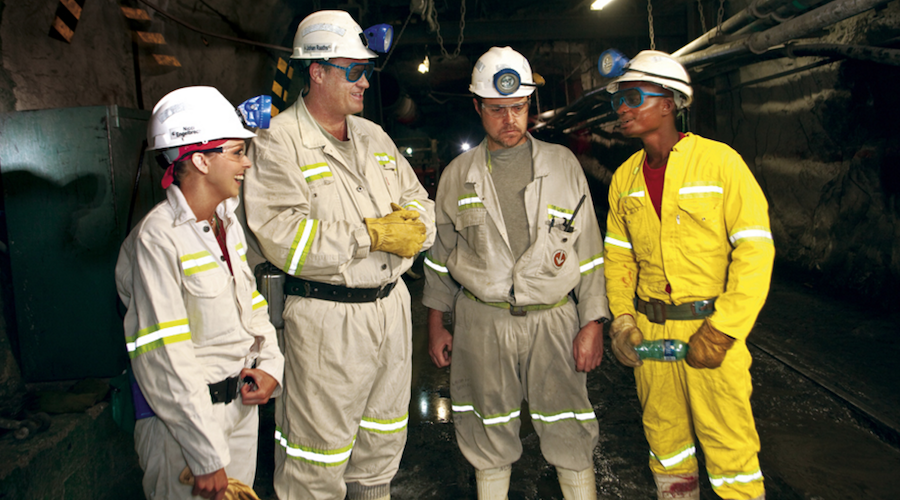Wage talks begin in South Africa’s shrinking gold industry

South Africa’s biggest gold producers and mining unions start wage talks Wednesday against the backdrop of stark declines in the industry that was once the world’s largest.
The National Union of Mineworkers, the sector’s biggest labor group, has demanded an increase in underground base pay of up to 37 percent from companies including Sibanye Gold Ltd. and AngloGold Ashanti Ltd., while the rival Association of Mineworkers and Construction Union is seeking even more.
South Africa’s gold mines are the world’s deepest and among the most labor intensive, so producers are constantly struggling to reduce costs. However, elevated levels of inequality and poverty mean that wage negotiations are inevitably highly charged.
Country’s gold production contracted for a seventh straight month in April and mining employment dropped to the lowest in Q1 since at least 2009.
Inflation in the country has accelerated from the seven-year low it reached in March and the rand’s plunge to its weakest in seven months may boost price growth, Reserve Bank Deputy Governor Kuben Naidoo has said.
For NUM, which has struggled with shrinking membership, the talks follow a standoff with power utility Eskom Holdings SOC Ltd., which backed down from a refusal to offer pay increases after worker protests caused blackouts.
NUM is demanding entry-level underground pay of 10,500 rand ($780) a month and a two-year agreement, it said Tuesday. AMCU, the second-largest union in South African gold mines, is seeking 12,500 rand a month. That would represent a substantial increase to companies including Harmony Gold Mining Co. Ltd., which reached an agreement in 2015 that increased the monthly minimum basic pay to 7,662 rand in July last year.
South African gold production contracted for a seventh straight month in April and mining employment in the first quarter dropped to the lowest since at least 2009. The four producers involved in the gold negotiations directly employ about 80,000 people, according to the Minerals Council South Africa lobby group.
The country’s gold production has fallen from a peak of 1,000 metric tons in 1970 to 138 tons last year. The industry has lost more than 57,000 jobs in the last decade.
The current gold-wage agreements expired on June 30 and new agreements that result from the centralized collective bargaining process will be back-dated to July 1, the Minerals Council said in a statement. The talks will also include the Solidarity and UASA unions.
The number of work stoppages in South Africa increased by 8 percent over the past two years to 132, according to Department of Labor data. The duration of most strikes lasted fewer than 11 working days, the department found.
The gold producers and unions may end up settling on an increase in the range of 8 percent to 9 percent, mostly affecting the lowest-paid workers, said Andrew Levy, managing partner of Andrew Levy Employment, which advises companies on labor relations.
A strike is less likely, with Levy estimating a one in five chance that industrial action could occur.
“Employees themselves are not willing to embark on long strikes,” he said.
{{ commodity.name }}
{{ post.title }}
{{ post.date }}




Comments